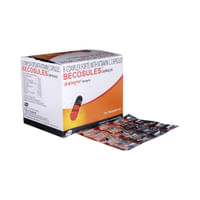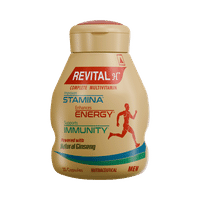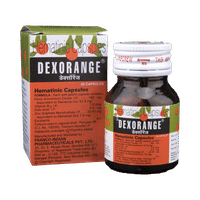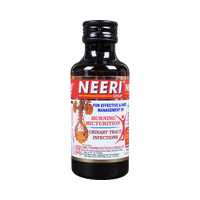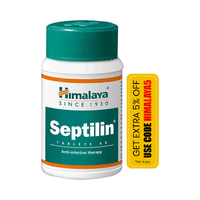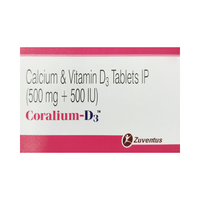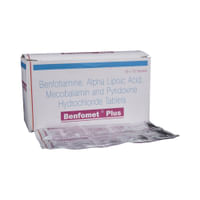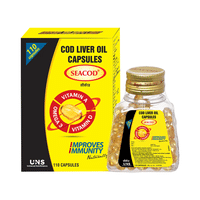Rs.192for 1 strip(s) (10 tablets each)
food interaction for Happynerve
alcohol interaction for Happynerve
pregnancy interaction for Happynerve
lactation interaction for Happynerve
food
alcohol
pregnancy
lactation
Happynerve LC Tablet may be taken with or without food, but it is better to take it at a fixed time.
None
None
CAUTION
It is not known whether it is safe to consume alcohol with Happynerve LC Tablet. Please consult your doctor.
CONSULT YOUR DOCTOR
Information regarding the use of Happynerve LC Tablet during pregnancy is not available. Please consult your doctor.
CONSULT YOUR DOCTOR
Information regarding the use of Happynerve LC Tablet during breastfeeding is not available. Please consult your doctor.
CONSULT YOUR DOCTOR
SALT INFORMATION FOR Happynerve
Folic Acid(1.5mg)
Uses
Folic Acid is used in the treatment of iron deficiency anemia, anemia due to folic acid deficiency and anemia due to chronic kidney disease.
How it works
Folic Acid is a form of vitamin B. It plays a vital role in the formation of red blood cells, which carry oxygen throughout the body. It is also essential in pregnancy due to its role in the development of the unborn baby's brain and spinal cord.
Common side effects
No common side effects seen
Methylcobalamin(1500mcg)
Uses
Methylcobalamin is used in vitamin B12 deficiency.
How it works
Methylcobalamin is a form of vitamin B12 that restores its level in the body thereby helping in treating certain anemias and nerve problems.
Common side effects
Decreased appetite, Diarrhea, Nausea, Rash
SUBSTITUTES FOR Happynerve
24 Substitutes
24 Substitutes
Sorted By
 Rs. 207.15pay 6% more per Tablet
Rs. 207.15pay 6% more per Tablet Rs. 173save 10% more per Tablet
Rs. 173save 10% more per Tablet Rs. 310.73pay 5% more per Tablet
Rs. 310.73pay 5% more per Tablet Rs. 370pay 79% more per Tablet
Rs. 370pay 79% more per Tablet Rs. 201.50pay 5% more per Tablet
Rs. 201.50pay 5% more per Tablet
Expert advice FOR Happynerve
- Folic Acid is used for the treatment of folic acid deficiency.
- It is also taken before and during pregnancy to decrease the risk of defects in the neural tube, which forms the spinal cord in the baby.
- Inform your doctor if you have a history of seizures as you may need a higher dose of the seizure medicines than what you normally take.
Frequently asked questions FOR Happynerve
Folic Acid
Q. Is it ok to take Folic Acid when not pregnant?
Usually, folic acid requirements are met from the diet and therefore additional supplements are not required. In general, Folic Acid is recommended only when you have a deficiency of folic acid. However, Folic Acid is advised to women who are pregnant and who want to conceive. The medicine should be taken at least 4 weeks before pregnancy and should continue its use up to 3 months of pregnancy. Consult your doctor if not sure.
Q. Can Folic Acid cause weight gain?
Animal studies on Folic Acid suggest that taking the medicine in excess along with a high-fat diet may lead to weight gain and fat accumulation. But this weight gain was not evident when taken along with a normal or low-fat diet, even with excess Folic Acid. In humans, similar studies have not been conducted and therefore knowledge regarding weight gain is lacking. Therefore, if you are on Folic Acid eat a low-fat meal to be on the safer side.
Q. How long does Folic Acid take to work?
Folic Acid usually starts working within a few hours of taking it. If you are taking it for iron deficiency anemia, you may start feeling better after a few weeks of taking it. In case you are taking it during pregnancy, you may not notice any difference but this does not mean that the dose is not working. Continue taking Folic Acid for the duration recommended by your doctor.
Methylcobalamin
Q. What is Methylcobalamin?
Methylcobalamin contains vitamin B12. Vitamin B12 is an essential nutrient which is required by the body to make red blood cells and maintain a healthy nervous system. It is also important for releasing energy from food and using vitamin B11 (folic acid).
Q. Why can’t I get sufficient vitamin B12 from my diet?
You can get vitamin B12 from sources like meat, fish, eggs and dairy products. While people who are vegetarian or vegan may not get Vitamin B12 as it is not found naturally in foods such as fruits, vegetables and grains. Therefore, deficiency of Vitamin B12 is usually noticed in vegetarians or vegans.
Q. What happens if I have vitamin B12 deficiency?
Deficiency of vitamin B12 may cause tiredness, weakness, constipation, loss of appetite, weight loss and megaloblastic anemia (a condition when red blood cells become larger in size than normal). It may also lead to nerve problems such as numbness and tingling in the hands and feet. Other symptoms of vitamin B12 deficiency may include problems with balance, depression, confusion, dementia, poor memory and soreness of the mouth or tongue.














